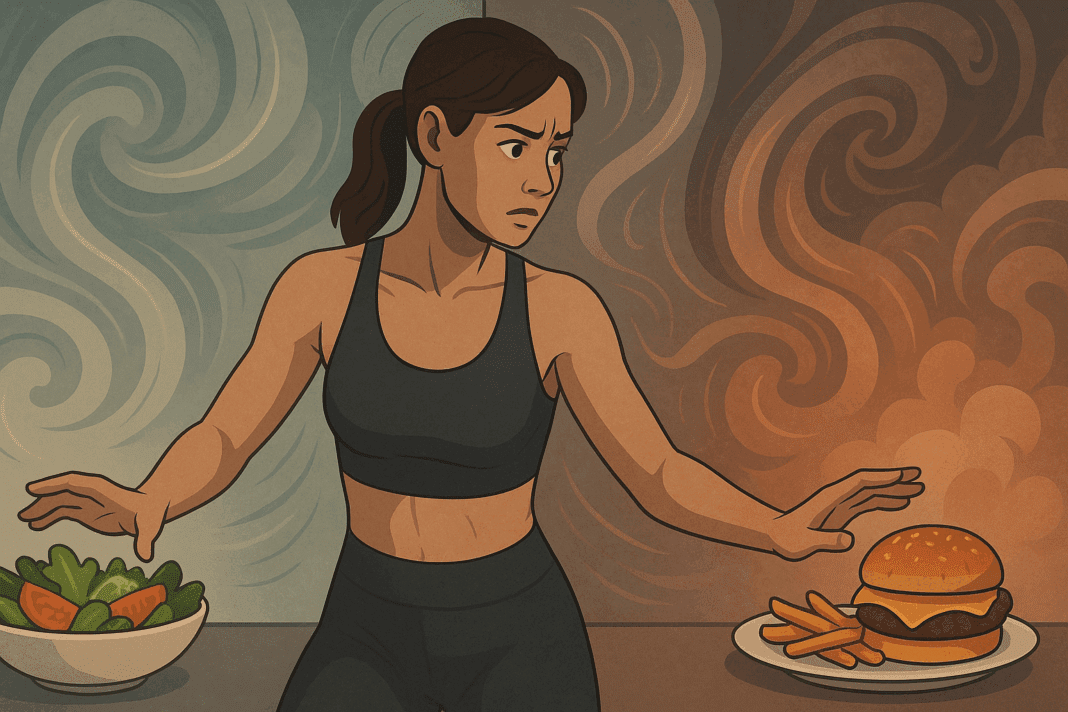For many health-conscious individuals, embarking on a fat loss journey begins with good intentions: choosing nutritious foods, watching portion sizes, and adhering to structured meal plans. Yet an ironic and often frustrating experience emerges early in the process—despite cutting calories or following a so-called ideal regimen, hunger intensifies. This paradox leaves many people wondering, “Why does my fat loss diet make me eat more food instead of less?” Even those who are determined to lose weight often find themselves always hungry, battling an internal conflict between dietary discipline and relentless cravings. Understanding the biological, psychological, and nutritional factors behind this phenomenon is critical to achieving sustainable weight loss without feeling deprived or defeated.
You may also like: How to Stop Emotional Eating and Regain Control: Mindful Nutrition Strategies That Support a Healthier Lifestyle
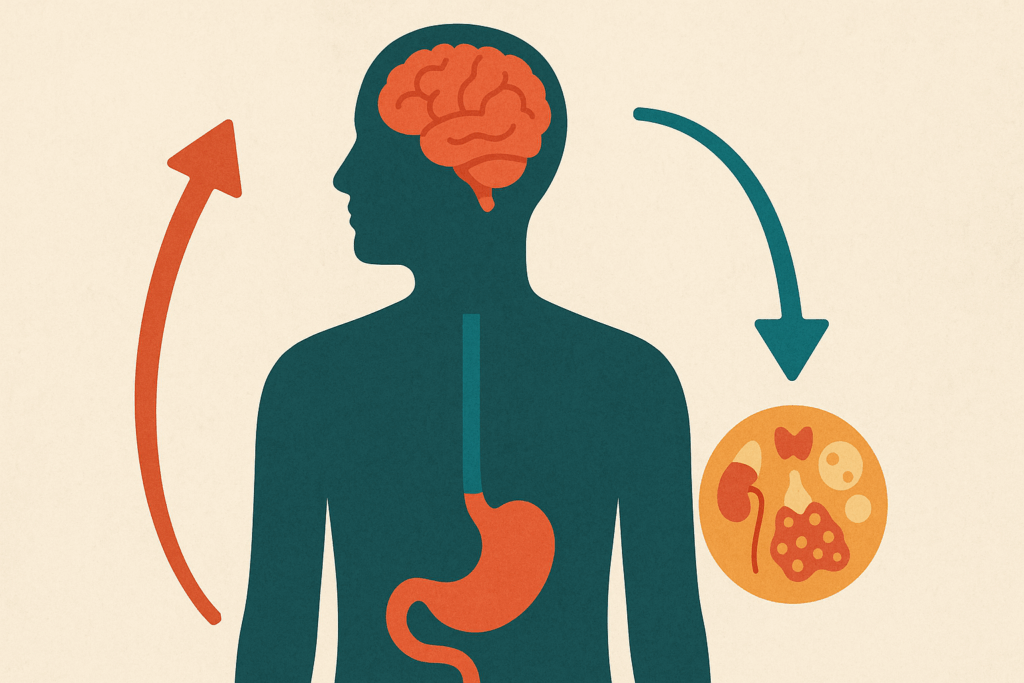
The Biology of Hunger: Why Dieting May Backfire
The human body is remarkably adept at protecting itself from perceived threats, including calorie restriction. When you begin a fat loss diet, your body interprets the sudden decrease in energy intake as a signal of scarcity. In response, several mechanisms are triggered to restore energy balance and prevent further weight loss. One of the primary players in this process is the hormone ghrelin, often referred to as the “hunger hormone.” Ghrelin levels rise when calorie intake falls, increasing appetite and encouraging food-seeking behavior. At the same time, leptin, a hormone that signals fullness and satiety, tends to decrease.
This hormonal imbalance creates a powerful urge to eat, even when the logical part of the brain knows the goal is to reduce body fat. It’s no wonder that so many people find themselves trying to lose weight but always hungry, despite sticking to their diet plans. Evolution has primed us for survival, not for six-pack abs or modern aesthetic ideals. As a result, biological safeguards make sustained calorie restriction difficult, often causing the very thing you’re trying to avoid: overeating.
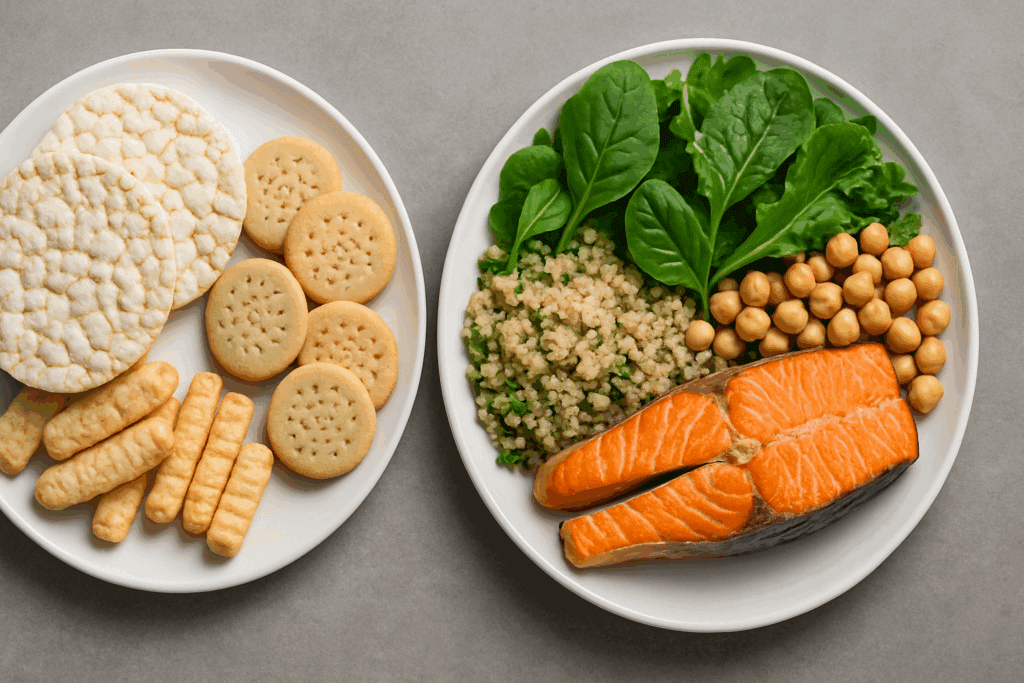
Nutrient Density vs. Calorie Density: Choosing Foods That Satisfy
One of the most common reasons people feel hungrier on a fat loss diet is that they focus heavily on calorie reduction while overlooking nutrient density. Foods that are low in calories but also low in nutrients do little to curb hunger or satisfy the body’s biological needs. For instance, a diet heavy in rice cakes, sugar-free snacks, or ultra-processed “diet” products may technically help you stay within your calorie limits but leave you feeling empty and unsatisfied.
By contrast, nutrient-dense foods—those rich in vitamins, minerals, fiber, and healthy fats—send signals to the body that its nutritional needs are being met. Leafy greens, legumes, lean proteins, and whole grains not only provide long-lasting energy but also regulate blood sugar and insulin, helping to reduce cravings. If your current experience is, “My fat loss diet is making me eat more food,” it might not be a matter of self-control but rather a lack of nutrient satisfaction. Shifting toward a diet that emphasizes whole, minimally processed foods can dramatically reduce feelings of deprivation.
Psychological Hunger and the Dieting Mindset
The act of dieting itself can become a psychological trigger for hunger, even in the absence of physical need. When certain foods are labeled “off-limits” or when eating is governed by strict rules, the brain interprets these limitations as a form of scarcity. This can create a heightened preoccupation with food, leading to increased cravings and an amplified perception of hunger. For many people, the more they focus on avoiding certain foods, the more intense the desire for those foods becomes.
This psychological pattern helps explain why people trying to lose weight often find themselves always hungry. The brain, conditioned by cycles of restriction and perceived deprivation, begins to rebel. This phenomenon is not a lack of willpower but rather a cognitive response to the stress and rigidity of dieting. A more sustainable approach involves adopting a flexible mindset toward eating—one that allows for balance, variety, and occasional indulgence without guilt. Such flexibility helps to reduce the mental obsession with food and creates a healthier relationship with nourishment.
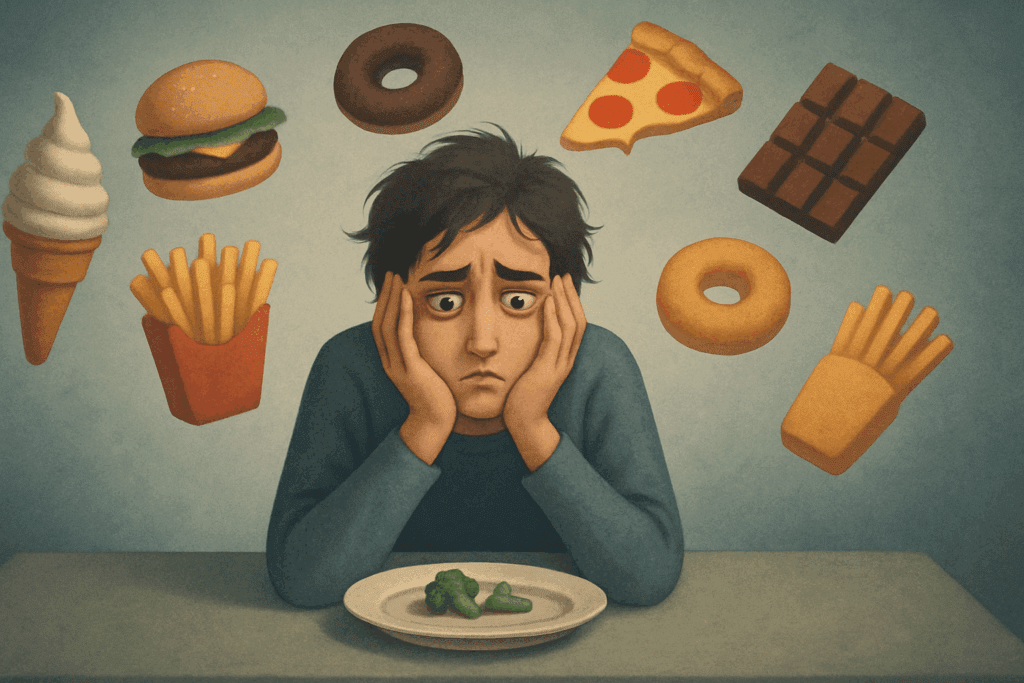
The Role of Protein and Fiber in Appetite Regulation
Protein and fiber are two macronutrients that play an outsized role in controlling hunger and supporting fat loss. Protein has a high satiety index, meaning it helps you feel full longer compared to fats or carbohydrates. It also requires more energy to digest, further boosting metabolic rate. Fiber, found abundantly in vegetables, fruits, legumes, and whole grains, adds bulk to meals without increasing calories, slows digestion, and stabilizes blood sugar levels.
Inadequate intake of these two nutrients can make even a calorie-appropriate diet feel unfulfilling. Many people report that “my fat loss diet is making me eat more food” simply because they are not including enough protein or fiber-rich foods in their meals. Adding a portion of beans, quinoa, or lentils to lunch, or starting the day with a protein-rich breakfast like eggs or Greek yogurt, can make a noticeable difference in hunger management. The strategic inclusion of these elements supports both satiety and nutritional balance.
Why Metabolic Adaptation Makes Dieting Harder Over Time
As weight loss progresses, the body becomes more efficient at conserving energy—a process known as metabolic adaptation. This means your resting metabolic rate may decrease, making it harder to continue losing weight on the same number of calories that initially worked. This adaptation is another reason why those trying to lose weight might find themselves always hungry as the body fights to maintain its weight set point.
This physiological response can lead to frustration and the perception of failure, prompting many to eat more in response to increased hunger. To combat this, periodic diet breaks, refeed days, or shifting to a maintenance phase can be useful tools. These strategies allow the body to stabilize, helping to recalibrate hormones and provide psychological relief. Such interventions are best implemented under the guidance of a registered dietitian or nutritionist to ensure long-term effectiveness and safety.
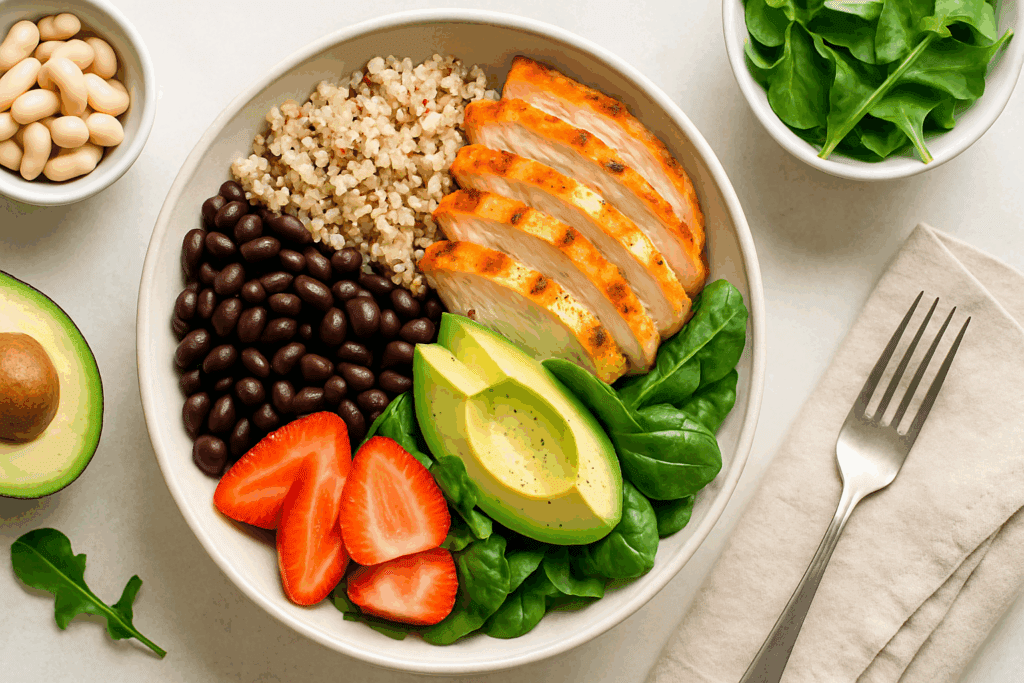
Sleep, Stress, and Hormonal Disruption
It’s impossible to talk about hunger without discussing the role of lifestyle factors such as sleep and stress. Both are closely tied to hormonal regulation and can significantly impact appetite. Poor sleep, even for just a few nights, can increase ghrelin levels and decrease leptin, mimicking the hormonal shifts caused by calorie restriction. Chronic stress similarly stimulates cortisol production, which can promote cravings for high-fat, high-sugar foods.
When combined with a restrictive diet, these factors compound hunger and make adherence to any fat loss plan much more difficult. Many individuals say, “I’m trying to lose weight but always hungry,” without realizing that their sleep hygiene or stress levels are quietly sabotaging their progress. Prioritizing adequate rest, engaging in stress-reduction practices such as mindfulness or yoga, and avoiding overexercising can all contribute to improved appetite control and metabolic health.
Rethinking Portion Sizes and the Quality of Calories
One of the reasons people feel compelled to eat more while dieting is that their meals are simply too small to be satisfying. This often stems from a misunderstanding of calorie quality versus quantity. For example, a small handful of nuts may be calorie-dense but offer limited satiety compared to a large salad filled with fibrous vegetables, grilled chicken, avocado, and a vinaigrette dressing. The salad provides both volume and nutrition, satisfying hunger on multiple levels.
Those who report, “My fat loss diet is making me eat more food,” may actually be consuming meals that are high in calories but low in volume. This discrepancy can lead to additional snacking and a cycle of overeating. Opting for high-volume, low-calorie foods such as leafy greens, soups, and steamed vegetables can help fill the stomach and reduce the need to overconsume. The goal is not to eat less but to eat smarter, with a focus on meals that are both satisfying and aligned with fat loss goals.
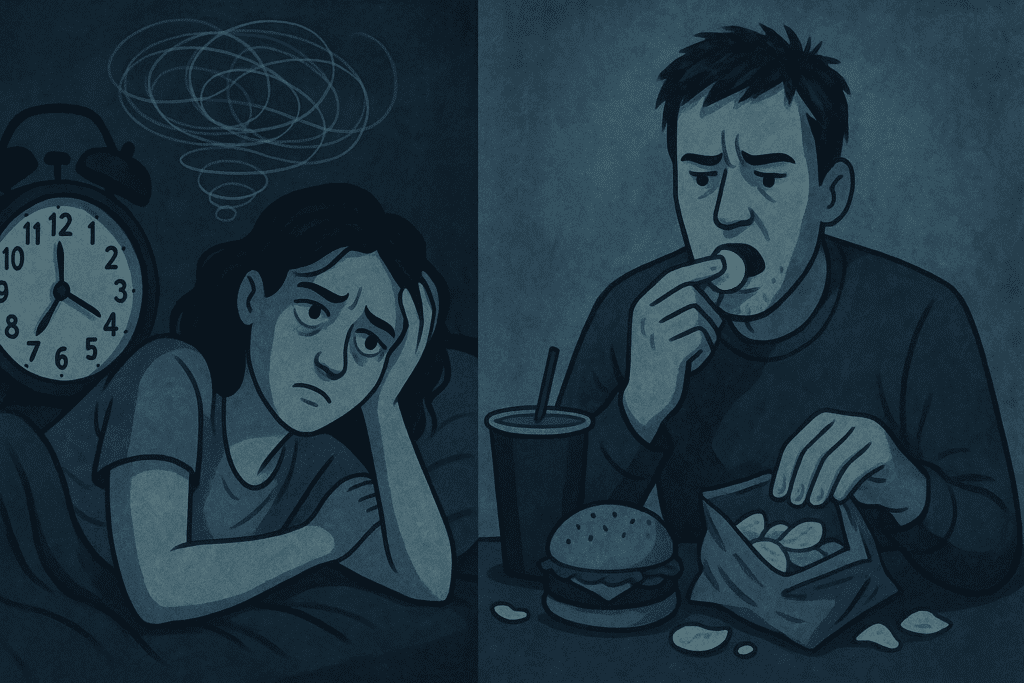
The Myth of Willpower and the Importance of Structure
Willpower is often overemphasized in discussions of weight loss, creating an unrealistic expectation that discipline alone can overcome biological hunger. In truth, long-term success is less about resisting temptation and more about creating environments that support healthy choices. Meal timing, food preparation, and consistent routines help reduce decision fatigue and prevent impulsive eating.
If you’re trying to lose weight but always hungry, it may be time to evaluate not just what you eat but when and how you eat. Skipping meals, going too long between eating, or consuming overly restrictive meals can all contribute to rebound hunger. Building a structure that includes regular, balanced meals and planned snacks can stabilize energy levels and make the dieting process feel less like a battle of wills and more like a sustainable lifestyle change.
Why Intuitive Eating Principles Can Support Fat Loss Goals
Intuitive eating is often misunderstood as incompatible with fat loss. However, when practiced with awareness and intention, it can be a valuable tool for recognizing true hunger signals, distinguishing emotional eating from physical hunger, and fostering a more compassionate relationship with food. By tuning into internal cues rather than external rules, intuitive eating reduces the stress and rigidity that can sabotage traditional dieting approaches.
Many who claim “my fat loss diet is making me eat more food” may find that intuitive eating principles allow them to eat in a way that feels both freeing and structured. Instead of rebelling against the diet, they learn to trust their body’s signals, which often results in more balanced food choices and reduced overeating episodes. This approach does not promise rapid weight loss, but it does promote long-term behavioral change and improved emotional well-being.
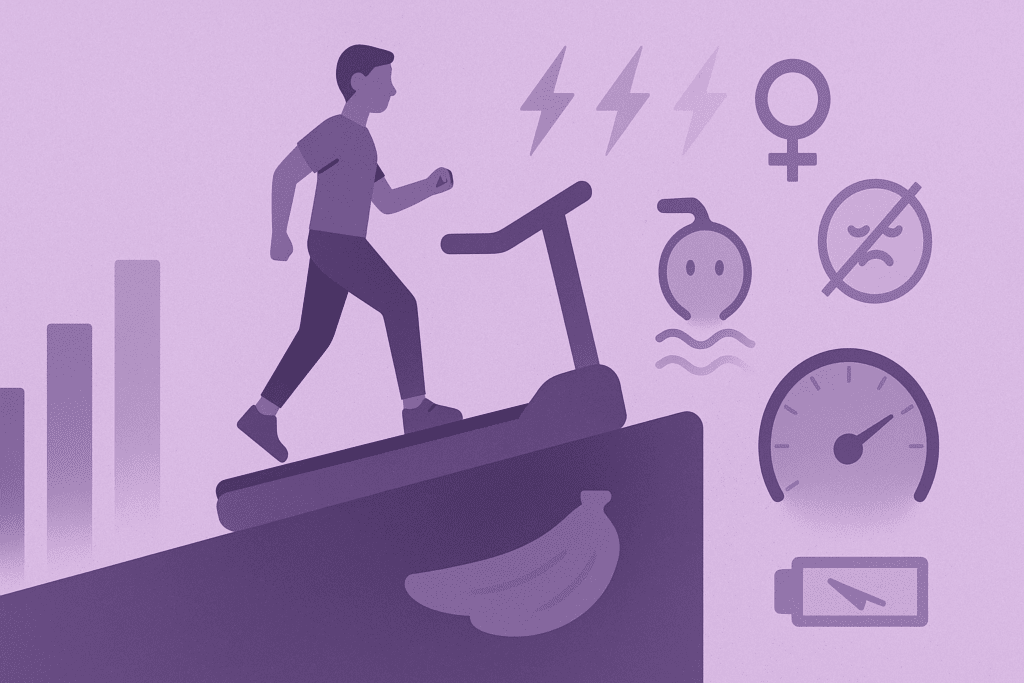
Hydration, Volume Eating, and Satiety Signals
Proper hydration is an often overlooked but critical aspect of hunger management. Mild dehydration can mimic hunger, leading people to eat when their bodies actually need water. Drinking water before meals, as well as choosing hydrating foods such as cucumbers, oranges, and watermelon, can help reduce perceived hunger and improve fullness cues.
Volume eating, a technique that involves consuming large portions of low-calorie foods, complements hydration strategies. This method enhances satiety by stretching the stomach and activating fullness receptors, helping reduce total caloric intake without creating a sense of deprivation. For those who find themselves trying to lose weight but always hungry, volume eating offers a way to feel physically full while staying on track with fat loss objectives.
Frequently Asked Questions: Managing Hunger While Dieting for Fat Loss
Why do some people feel more hungry after starting a fat loss diet?
One lesser-discussed reason why hunger increases after beginning a fat loss diet is the psychological shift from abundance to scarcity. When people start dieting, especially with rigid rules, the brain becomes hyper-focused on food, even in the absence of physical hunger. This cognitive preoccupation can be exacerbated by food tracking apps or social media comparisons, increasing emotional hunger and leading to increased food intake. It’s no wonder many report, “My fat loss diet is making me eat more food,” as the pressure to follow strict protocols may create mental fatigue and rebound eating. Strategies like practicing mindfulness and de-emphasizing numerical food tracking can help reduce this mental burden.
Is it normal to crave unhealthy foods while trying to lose weight?
Yes, and it’s often rooted in more than just a lack of willpower. When you’re trying to lose weight but always hungry, your body seeks quick energy sources, often in the form of sugar and fat. These cravings aren’t simply about indulgence; they’re a biological and emotional coping mechanism triggered by deprivation. In fact, the absence of variety or pleasure in one’s diet can amplify cravings, especially when dieting becomes joyless. Introducing small portions of enjoyable, nutrient-dense treats can prevent binge episodes and reduce the frustration of constantly feeling deprived.
Can meal timing impact hunger levels on a fat loss plan?
Absolutely. Irregular or poorly timed meals can disrupt circadian rhythms and blood sugar regulation, which may increase hunger throughout the day. People often skip breakfast thinking it saves calories, but this can lead to a sharper appetite rebound by lunchtime. When someone says, “My fat loss diet is making me eat more food,” it could be that poor meal spacing is contributing to unmanageable hunger. Eating protein-rich meals every four to five hours helps stabilize blood glucose and keeps satiety hormones balanced. Implementing a structured eating schedule—without rigid time slots—can be a sustainable way to curb excessive hunger.
How do dieting and gut health interact to influence appetite?
Emerging research shows that gut microbiota composition can influence both appetite and satiety. Restrictive diets can negatively impact gut diversity, reducing the presence of helpful bacteria that assist with digestion and hormone signaling. When gut health declines, signals to the brain about fullness may become muted, causing a sensation that you’re trying to lose weight but always hungry. Incorporating fermented foods like kefir, kimchi, and miso, or supplementing with evidence-based probiotics, may improve gut health and promote appetite regulation. This connection is often overlooked but plays a critical role in sustainable fat loss.
Are cheat meals helpful or harmful when managing diet-related hunger?
Cheat meals can either support or sabotage your progress depending on how they are approached. When planned intentionally and enjoyed without guilt, they can act as psychological relief valves, making long-term adherence to a healthy diet more achievable. However, when cheat meals turn into binge episodes, they often reinforce a cycle of restriction and overconsumption. Individuals who say, “My fat loss diet is making me eat more food,” may actually benefit from integrating indulgent meals into their regular routines in a balanced way. Rather than labeling meals as “cheats,” consider adopting a flexible dieting approach that accounts for all foods in moderation.
Why does dieting sometimes lead to late-night overeating?
Late-night hunger often stems from under-fueling during the day. Many people restrict calories early on but end up in a calorie deficit so deep that by evening, their appetite surges. When trying to lose weight but always hungry by bedtime, the issue may not be night snacking, but inadequate nutrition throughout the day. Skipping meals or consuming only low-fat, low-carb foods can leave you physiologically depleted, setting the stage for impulsive eating later. Rebalancing meals to include steady sources of protein, healthy fats, and complex carbs during the day can prevent this common pitfall.
What role does emotional eating play in dieting setbacks?
Emotional eating is often amplified when someone is under dietary stress or physical restriction. When food becomes the primary reward or escape from stress, the lines between physical hunger and emotional desire blur. For people who feel, “My fat loss diet is making me eat more food,” the problem might not be physical hunger but the lack of emotional coping mechanisms unrelated to food. Developing skills like journaling, cognitive reframing, or even creative outlets such as painting or walking outdoors can redirect emotional energy in healthier ways. Recognizing emotional hunger as valid, but not requiring food, is a crucial skill in sustainable weight management.
Is constant hunger a sign that a diet isn’t right for you?
Constant hunger can indeed signal a misaligned or poorly constructed diet. If you’re trying to lose weight but always hungry, it’s important to re-evaluate whether you’re consuming enough fiber, protein, or food volume to support satiety. Many trendy diets overlook individual variability and prioritize aesthetics over function. A diet that leaves you drained, anxious, or obsessed with your next meal isn’t sustainable or healthy. Listening to your body’s signals and working with a registered dietitian can help you redesign a plan that fits both your nutritional needs and lifestyle preferences.
How does social pressure influence eating behavior during fat loss efforts?
Social environments heavily influence how, what, and when we eat. Friends urging you to indulge at dinner, family members questioning your food choices, or social media showcasing unrealistic body ideals can all derail progress. Someone who feels, “My fat loss diet is making me eat more food,” may be reacting to social expectations rather than personal hunger. Setting clear boundaries, having a prepared script for social situations, and surrounding yourself with supportive individuals can significantly improve adherence. Building self-trust and autonomy around food choices reduces the impact of external noise on internal decisions.
Can long-term calorie restriction cause psychological burnout?
Yes, prolonged restriction can lead to burnout, where the mental and emotional effort to continue dieting becomes overwhelming. This is particularly common in those who feel they’re trying to lose weight but always hungry, despite eating seemingly “clean.” Over time, the cognitive load of managing every meal, denying cravings, and resisting food culture can erode motivation and lead to episodes of overeating or giving up entirely. Periodic diet breaks, mental health check-ins, and flexible goal-setting are essential for long-term sustainability. Mental resilience is just as critical as nutritional knowledge in successful fat loss journeys.
Conclusion: Managing Hunger Without Losing Control of Your Goals
In the quest for weight loss, hunger is not merely a hurdle—it’s a complex signal with biological, psychological, and nutritional roots. Recognizing why your fat loss diet is making you eat more food is the first step toward crafting a sustainable, fulfilling approach to health. It’s not a failure of willpower or motivation when you find yourself trying to lose weight but always hungry. Rather, it’s a sign that your body and mind are asking for a more balanced strategy.
By prioritizing nutrient-dense foods, honoring hunger cues, managing stress, ensuring adequate sleep, and embracing flexible eating frameworks, you can make meaningful progress without sacrificing comfort or joy. Hunger does not have to derail your goals—when understood and addressed thoughtfully, it becomes a guidepost toward smarter, more compassionate health choices. In the end, the most effective fat loss diet is one that supports your well-being, not one that pits you against your own body.
Was this article helpful? Don’t let it stop with you. Share it right now with someone who needs to see it—whether it’s a friend, a colleague, or your whole network. And if staying ahead on this topic matters to you, subscribe to this publication for the most up-to-date information. You’ll get the latest insights delivered straight to you—no searching, no missing out.

